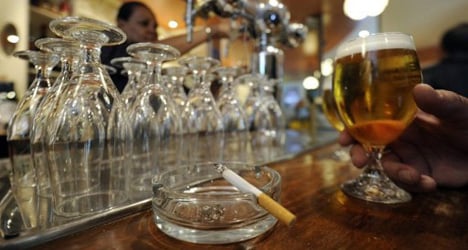Spain's Minister for Finance and Public Administrations, Cristóbal Montoro, could be set to impose a range of special taxes, according to a report in national daily El País on Monday.
Tax revenue as a percentage of GDP in Spain is 36%, well below the eurozone average of 46.5%
The pressure of a new Stability Program, recently submitted to Brussels, means that further tax-raising measures are now being discussed.
Alcoholic drinks are first in the line of fire, with a tax hike of 8-10% expected by those in the industry.
Beer, wine and spirits escaped the last round of tax rises, partly to protect Spain's valuable tourism industry, but total tax revenue fell last year by 3.5% compared with 2011.
The World Health Organization ranks Spain as 30th in the world for alcohol consumption, with an average of 11.6 litres per capita per year.
Despite overall consumption remaining stable in recent years, the drinks industry has claimed that with margins squeezed by declining sales (down by 20%), and taxes already representing 24% of the purchase price of beer and 41% of spirits, any further hikes will have to be passed on to customers.
Tobacco is also predicted to face tax increases despite a number of recent rises.
79% of the price of each cigarette is taxed but overall revenue from tobacco fell by 2.6% in 2012.
Motorists could be spared in the short term, as Montoro recently declared further fuel tax rises off-limits when presenting the Stability Program.
A raft of other possibilities are under scrutiny, including eliminating additional tax deductions for large companies with revenues of over €20 million per year, introducing 'Green' taxes, and raising VAT on sanitary products and legal services.



 Please whitelist us to continue reading.
Please whitelist us to continue reading.
Member comments